- By Mina Ojelabi
The Honourable Minister of Marine and Blue Economy, Adegboyega Oyetola, CON, on Tuesday convened a high-level Citizens and Stakeholders Forum at Eko Hotels and Suites, Victoria Island, Lagos, to galvanize support for the effective implementation of the recently approved National Policy on Marine and Blue Economy.
Held under the theme “Strengthening Collaboration for Effective Implementation of the National Policy on Marine and Blue Economy,” the forum gathered critical stakeholders from government, industry, academia, and civil society.
The goal; to build a unified, action-oriented framework to unlock Nigeria’s marine economic potential.
Delivering the keynote address, Oyetola emphasized that the creation of the Ministry of Marine and Blue Economy under President Bola Ahmed Tinubu’s Renewed Hope Agenda marks a bold reform with transformative potential.
He described the Federal Executive Council’s approval of the National Policy as a strategic milestone that provides a structured approach to harness the country’s marine assets ranging from ports and fisheries to coastal tourism and ocean governance.
“This forum is not ceremonial,” Oyetola said. “It’s a working session to define implementation roadmaps, institutional responsibilities, and measurable deliverables. Citizen engagement, inter-agency coordination, and accountability will be key to our success.”
He also referenced global trends that show inclusive policymaking improves outcomes in complex sectors like the marine economy.
Despite early institutional hurdles, the Ministry has recorded significant achievements, including a 75% performance rating in 2024 by the Central Results Delivery Coordination Unit.
Oyetola praised the Ministry’s Delivery Task Teams for this progress and urged sustained efforts.
Providing updates on major initiatives, the Minister announced ongoing reconstruction works at Apapa and Tin Can Ports under the Western Port Rehabilitation Programme, with procurement for Eastern Ports underway.
These upgrades are supported by digital innovations like the Port Community System, an electronic call-up platform, and a unified One-Stop-Shop for port clearance all aimed at easing congestion and boosting investor confidence.
Oyetola reiterated the government’s resolve to revive Nigeria’s indigenous shipping capacity via a public-private National Carrier project.
Preparatory work has also begun for the transparent disbursement of the Cabotage Vessel Financing Fund by Oyetola Rallies Stakeholders to Drive Marine and Blue Economy Policy Into Action.
The Honourable Minister of Marine and Blue Economy, Adegboyega Oyetola, CON, on Tuesday convened a high-level Citizens and Stakeholders Forum at Eko Hotels and Suites, Victoria Island, Lagos, to galvanize support for the effective implementation of the recently approved National Policy on Marine and Blue Economy.
Held under the theme “Strengthening Collaboration for Effective Implementation of the National Policy on Marine and Blue Economy,” the forum gathered critical stakeholders from government, industry, academia, and civil society. The goal: to build a unified, action-oriented framework to unlock Nigeria’s marine economic potential.
Delivering the keynote address, Oyetola emphasized that the creation of the Ministry of Marine and Blue Economy under President Bola Ahmed Tinubu’s Renewed Hope Agenda marks a bold reform with transformative potential.
He described the Federal Executive Council’s approval of the National Policy as a strategic milestone that provides a structured approach to harness the country’s marine assets ranging from ports and fisheries to coastal tourism and ocean governance.
“This forum is not ceremonial,” Oyetola said. “It’s a working session to define implementation roadmaps, institutional responsibilities, and measurable deliverables. Citizen engagement, inter-agency coordination, and accountability will be key to our success.”
He also referenced global trends that show inclusive policymaking improves outcomes in complex sectors like the marine economy.
Despite early institutional hurdles, the Ministry has recorded significant achievements, including a 75% performance rating in 2024 by the Central Results Delivery Coordination Unit. Oyetola praised the Ministry’s Delivery Task Teams for this progress and urged sustained efforts.
Providing updates on major initiatives, the Minister announced ongoing reconstruction works at Apapa and Tin Can Ports under the Western Port Rehabilitation Programme, with procurement for Eastern Ports underway.
These upgrades are supported by digital innovations like the Port Community System, an electronic call-up platform, and a unified One-Stop-Shop for port clearance all aimed at easing congestion and boosting investor confidence.
Oyetola reiterated the government’s resolve to revive Nigeria’s indigenous shipping capacity via a public-private National Carrier project. Preparatory work has also begun for the transparent disbursement of the Cabotage Vessel Financing Fund by NIMASA, expected to greatly empower local operators.
On digitization, the Minister said streamlined procedures and increased investment in dry ports, inland logistics corridors, and bonded terminals are helping position Nigeria as the regional logistics hub.
Oyetola also highlighted regional strides, including Nigeria’s leadership in establishing the Regional Maritime Development Bank under MOWCA, to be headquartered in Abuja, and aimed at long-term maritime infrastructure financing.
The Ministry’s inland waterways push, driven by NIWA, has produced tangible results: over 42,000 life jackets distributed, improved water safety campaigns, deployment of patrol boats, and trained water marshals all contributing to safer travel and reduced boat mishaps.
On fisheries and aquaculture, the Minister said the recent transfer of the department to the Ministry has kickstarted sector reforms reviving fishing terminals, automating licenses, and attracting aquaculture investment.
Security remains a core agenda. With the Deep Blue Project, Nigeria has recorded zero piracy incidents in its waters for three straight years, earning international recognition.
Oyetola also revealed that Nigeria’s offer to host the AU Combined Maritime Task Force in Lagos has been endorsed by the AU Peace and Security Council.
Internationally, Nigeria has launched a campaign to secure a Category “C” seat on the International Maritime Organisation (IMO) Council this year, reflecting its intent to shape global maritime policy.
Oyetola closed with a strong call for innovation, investment, and coherent policy action to deliver a sustainable blue economy.
He thanked stakeholders for their ongoing collaboration and called for a renewed sense of urgency in policy execution.
Earlier, Permanent Secretary Olufemi Michael Oloruntola reaffirmed the Ministry’s commitment to inclusive engagement, noting that updated directives now mandate quarterly stakeholder sessions for transparency and shared ownership.
The forum drew broad participation from shipowners, terminal operators, maritime agencies, freight forwarders, truckers, women’s groups, and key institutions like the Nigerian Navy, Customs Service, Agricultural Quarantine Service, and the National Technology Development Agency.
Through intensive sessions and deliberations, the event set a strong foundation for coordinated, inclusive implementation of Nigeria’s Marine and Blue Economy Policy.
NIMASA, expected to greatly empower local operators.
On digitization, the Minister said streamlined procedures and increased investment in dry ports, inland logistics corridors, and bonded terminals are helping position Nigeria as the regional logistics hub.
Oyetola also highlighted regional strides, including Nigeria’s leadership in establishing the Regional Maritime Development Bank under MOWCA, to be headquartered in Abuja, and aimed at long-term maritime infrastructure financing.
The Ministry’s inland waterways push, driven by NIWA, has produced tangible results: over 42,000 life jackets distributed, improved water safety campaigns, deployment of patrol boats, and trained water marshals all contributing to safer travel and reduced boat mishaps.
On fisheries and aquaculture, the Minister said the recent transfer of the department to the Ministry has kickstarted sector reforms reviving fishing terminals, automating licenses, and attracting aquaculture investment.
Security remains a core agenda. With the Deep Blue Project, Nigeria has recorded zero piracy incidents in its waters for three straight years, earning international recognition.
Oyetola also revealed that Nigeria’s offer to host the AU Combined Maritime Task Force in Lagos has been endorsed by the AU Peace and Security Council.
Internationally, Nigeria has launched a campaign to secure a Category “C” seat on the International Maritime Organisation (IMO) Council this year, reflecting its intent to shape global maritime policy.
Oyetola closed with a strong call for innovation, investment, and coherent policy action to deliver a sustainable blue economy.
He thanked stakeholders for their ongoing collaboration and called for a renewed sense of urgency in policy execution.
Earlier, Permanent Secretary Olufemi Michael Oloruntola reaffirmed the Ministry’s commitment to inclusive engagement, noting that updated directives now mandate quarterly stakeholder sessions for transparency and shared ownership.
The forum drew broad participation from shipowners, terminal operators, maritime agencies, freight forwarders, truckers, women’s groups, and key institutions like the Nigerian Navy, Customs Service, Agricultural Quarantine Service, and the National Technology Development Agency.
Through intensive sessions and deliberations, the event set a strong foundation for coordinated, inclusive implementation of Nigeria’s Marine and Blue Economy Policy.

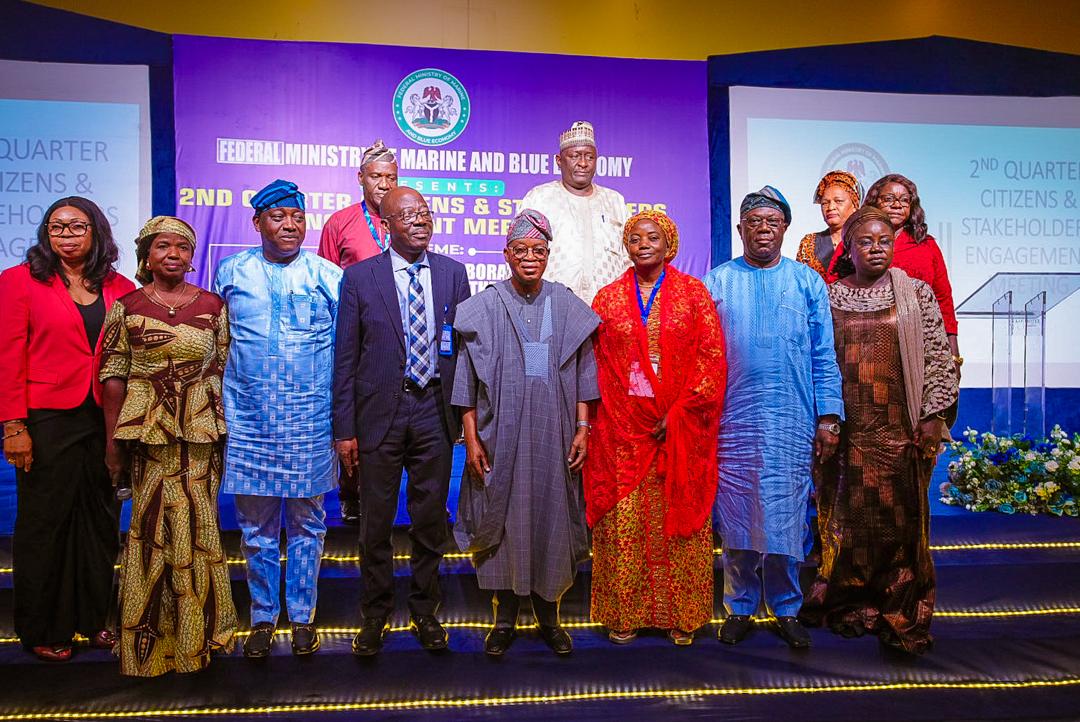
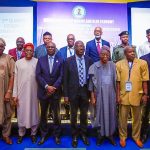
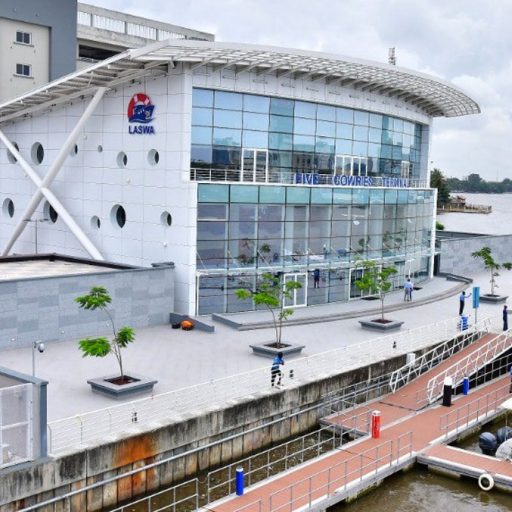
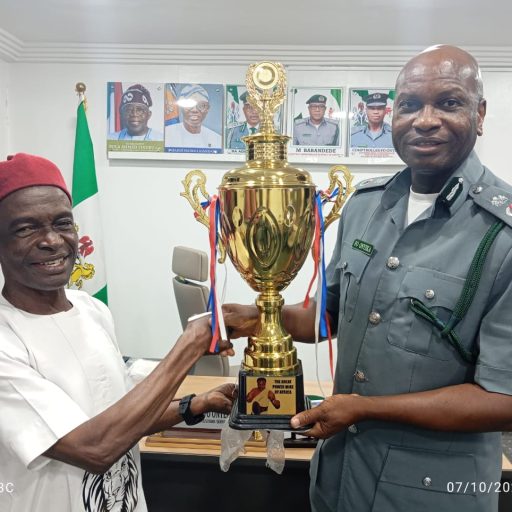
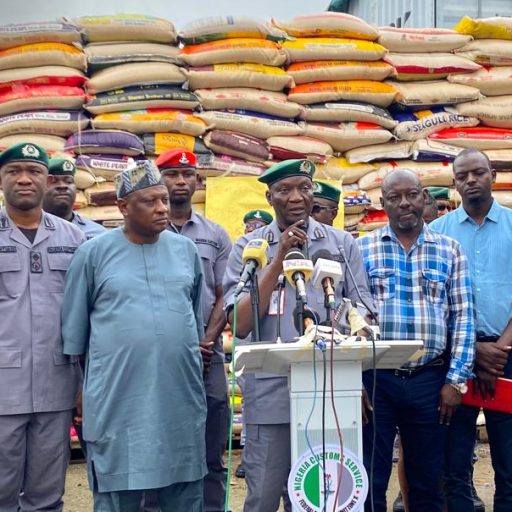
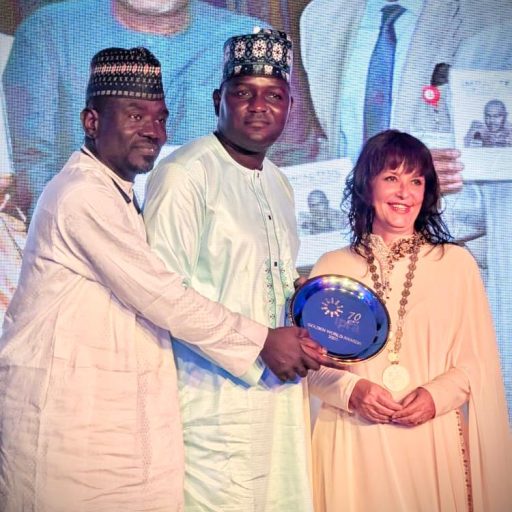
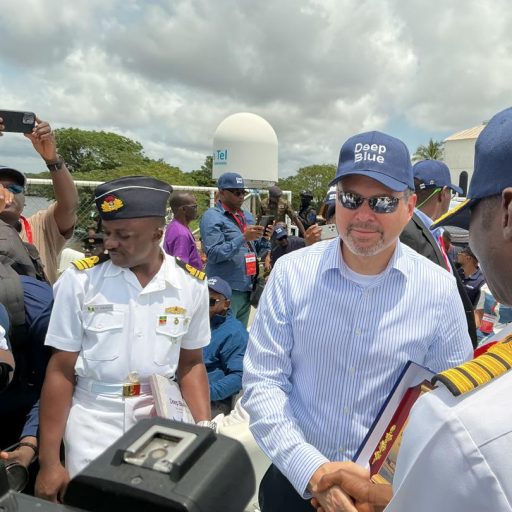
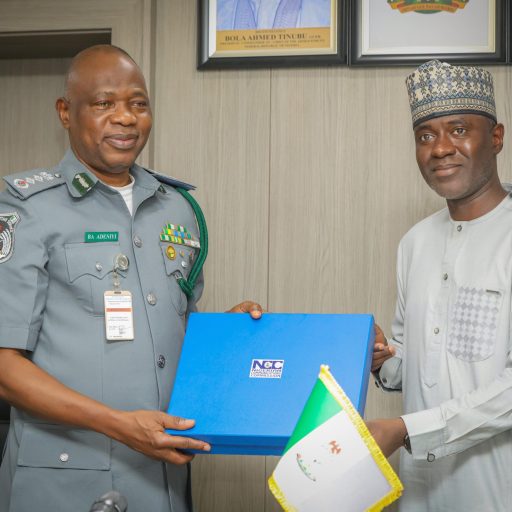
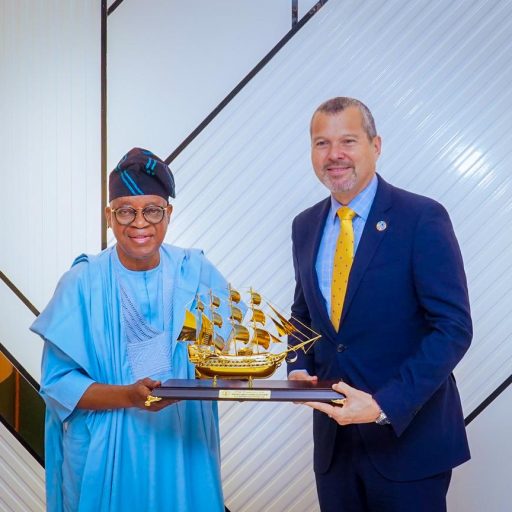

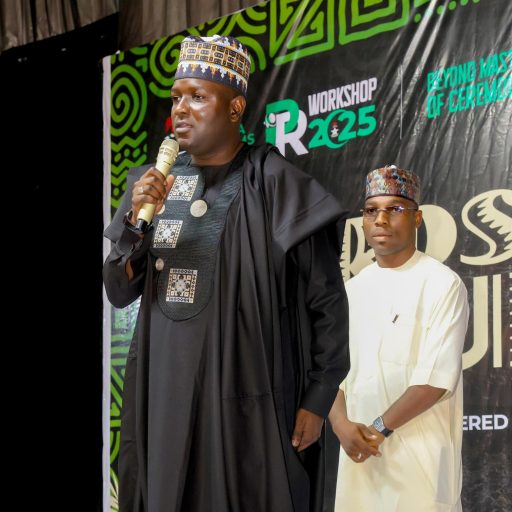
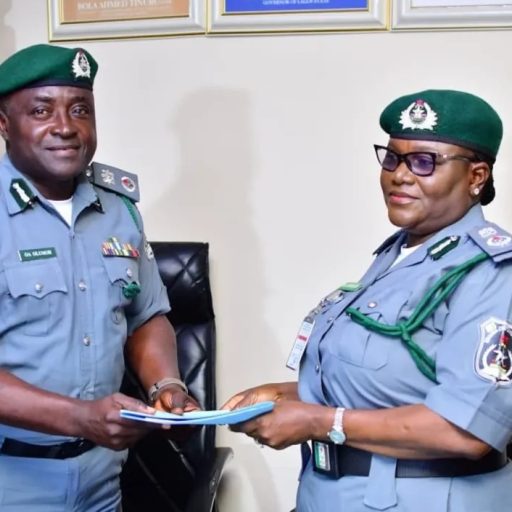
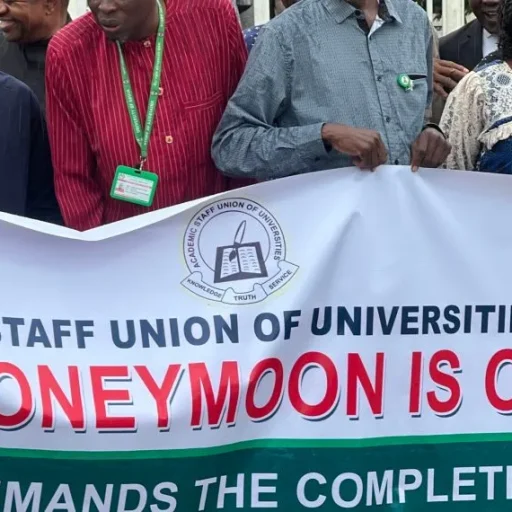
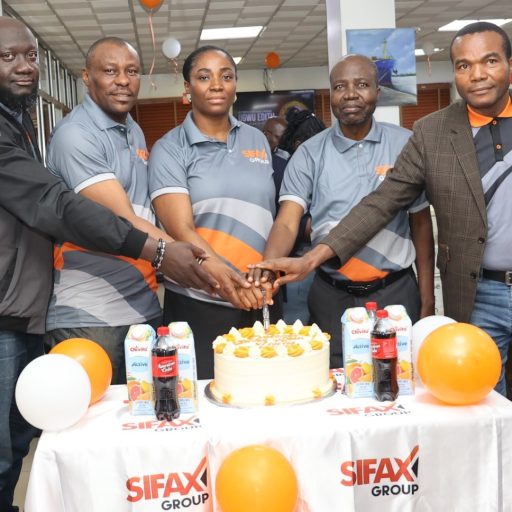
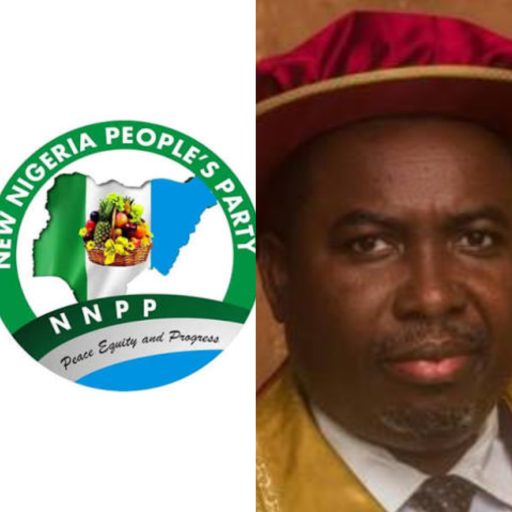
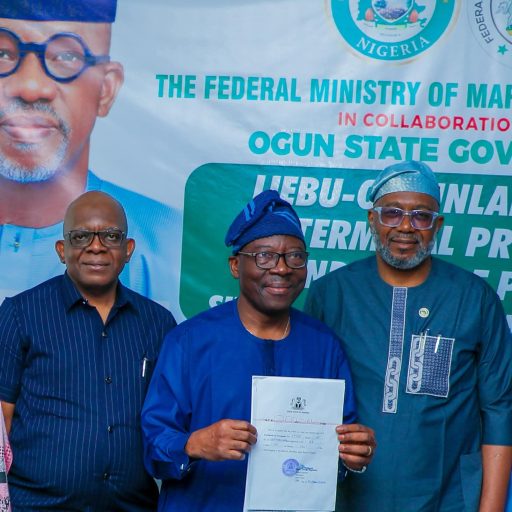
Leave a Reply